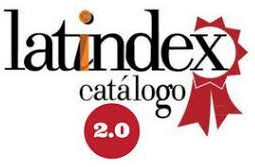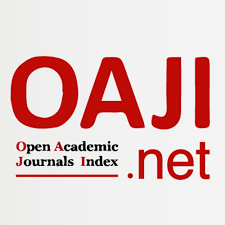“An event that remained etched in my memory”: Traumas, Memories, and Forgetfulness in the Narratives of the Soldiers of the Brazilian Expeditionary Force
Abstract
The present article aims to analyze an aspect of the participation of the Brazilian Expeditionary Force (FEB) in World War II: the transmission of narratives in the face of the traumatic nature of these experiences. The main hypothesis of the analysis is that the narratives of FEB veterans about their experiences in World War II are marked by a profound unease and a desire to forget, reflecting the complexity of both collective and individual memory in relation to traumatic experiences. Although these narratives often include elements of heroism and patriotism, they also reveal a tension between the need for remembrance and the difficulty of expressing and communicating the pain and trauma of war.Downloads
References
ANVFEB-JF (1981). Histórias de “pracinhas” contadas por eles mesmos.
Assmann, A. e Soethe, P. (2011). Espaços da recordação: formas e transformações da memória cultural. UNICAMP.
Benjamin, W. (1994). Magia e técnica, arte e política: ensaios sobre literatura história da cultura. Brasiliense.
Bohleber, W. (2007). Recordação, trauma e memória coletiva: a luta pela recordação em psicanálise. Revista Brasileira de Psicanálise, 41, 154-175.
Bonalume Neto, R. (1995). A Nossa Segunda Guerra: os brasileiros em combate (1942-1945). Expressão e Cultura.
Capelato, M. H. (2007). O Estado Novo: o que trouxe de novo? in J. Ferreira e L. de A. N. Delgado (orgs.), O Brasil Republicano: O tempo do nacional-estatismo (pp. 107 – 144). Civilização Brasileira.
Carneiro, M. (1999). O Estado Novo, o DOPS e a ideologia da segurança nacional in J. Pandolfi, Dulce (org.), Repensando o Estado Novo (pp. 329-340). FGV.
Cytrynowicz. R. (2000). Guerra sem Guerra: a mobilização e o cotidiano em São Paulo durante a Segunda Guerra Mundial. Geração Editorial.
Ferraz, F. C. A. (2008). As guerras Mundiais e seus Veteranos: Uma abordagem comparativa. Revista Brasileira de História, 28, 463-486.
Ferraz, F. C. A. (2012). A guerra que não acabou: a reintegração social dos veteranos da Força Expedicionária Brasileira (1945 – 2000). Eduel.
Musto Flores, R. (2019). O jogo de Luz e Sombras: os usos e abusos de uma memória sobre a Força Expedicionária Brasileira (1945 – 2017) [Dissertação de Mestrado em Patrimônio Cultural, Paisagens e Cidadania]. Universidade Federal de Viçosa.
Gagnebin, J. M. (2004). Memória, História, Testemunho in S. Bresciani e M. Naxara (orgs.), Memória, (res)sentimento: indagações sobre uma questão sensível (pp. 83-92). Unicamp.
Maximiano, C. C. (2010). Barbudos, Sujos e Fatigados: Soldados Brasileiros na Segunda Guerra Mundial. Grua.
Nass, S. de F. (2005). Legião paranaense do expedicionário: Indagações sobre a reintegração social dos febianos paranaenses (1943-1951) [Dissertação de Mestrado em História]. Universidade Federal do Paraná.
Oliveira, E. M. (2021). No front da memória: as batalhas pelos espólios da segunda guerra mundial em Belo Horizonte (1945-2020) [Dissertação de Mestrado em Patrimônio Cultural, Paisagens e Cidadania]. Universidade Federal de Viçosa.
Piovezan, A. (2017). Morrer na Guerra: A sociedade diante da morte em combate. CRV.
Ribeiro, P. da S. (2013). Em Luto e Luta: construindo a memória da FEB [Tese de Doutorado em História, Política e Bens Culturais]. Fundação Getúlio Vargas.
Sarlo, B. (2007). Tempo passado: cultura da memória e guinada subjetiva. Companhia das Letras.
Copyright (c) 2025 Rodrigo Musto Flores

This work is licensed under a Creative Commons Attribution-NonCommercial 4.0 International License.

Historia & Guerra uses an international license Attribution-NonCommercial 4.0 International (CC BY-NC 4.0).
You are free to:
- Share — copy and redistribute the material in any medium or format.
- Adapt — remix, transform, and build upon the material.
- The licensor cannot revoke these freedoms as long as you follow the license terms..
Under the following terms:
Attribution — You must give appropriate credit, provide a link to the license, and indicate if changes were made. You may do so in any reasonable manner, but not in any way that suggests the licensor endorses you or your use.
NonCommercial — You may not use the material for commercial purposes.
No additional restrictions — You may not apply legal terms or technological measures that legally restrict others from doing anything the license permits.
Notices:
You do not have to comply with the license for elements of the material in the public domain or where your use is permitted by an applicable exception or limitation.
No warranties are given. The license may not give you all of the permissions necessary for your intended use. For example, other rights such as publicity, privacy, or moral rights may limit how you use the material.
The author retains all rights to his work without restriction and grants Historia & Guerra the right to be the first publication of the work. Likewise, the author may establish additional agreements for the non-exclusive distribution of the version of the work published in the Journal (for example, placing it in an institutional repository or publishing it in a book), with the acknowledgment of having been first published in this journal. Use of the work for commercial purposes is not permitted.














.jpg)















